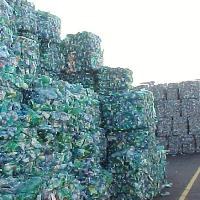(BRUSSELS) – A new Circular Plastics Alliance of of key industry stakeholders, launched Tuesday by the EU Commission, with the aim of improving the economics and the quality of plastics recycling in Europe.
Part of EU efforts to accelerate Europe’s transition towards a circular economy, the aim of the Circular Plastics Alliance is to improve the economics and quality of plastics recycling in Europe. This will be done through strengthening the match between supply and demand for recycled plastics, identified as the main obstacle to a well-functioning EU market of recycled plastics.
The initiative, says the EU executive, will contribute to the objective of achieving at least 10 million tons of recycled plastics into new products on the EU market by 2025 – set in the ‘European Strategy for Plastics’.
“Business understands this is an opportunity to innovate and to become global frontrunners in new technology and materials, in line with circular economy logic,” said EC vice-president Jyrki Katainen: “The platform that we are setting up today will encourage cooperation and dialogue between market operators, both on the supply and the demand side, so that we can together build a well-functioning market for recycled plastics.”
The Circular Plastics Alliance will be a high-level, multi-stakeholder platform gathering key industry stakeholders covering the full plastics value chain from waste collectors to recyclers and primary producers to converters, brand owners and retailers -including in particular packaging, construction and automotive sectors.
The Alliance will pursue three main operational objectives:
- Fostering short-term, voluntary and coordinated actions and investments by key industry stakeholders. There actions and investments may cover separate collection of plastic waste; harmonised reporting on collection and recycling rates and volumes; investments in sorting and recycling facilities; voluntary standards on the ‘design for recycling’ of plastic products and others. Improving the economics and quality of plastics recycling in Europe would contribute to the achievement of the 10 million tons target by 2025. Public authorities across Europe should also play an active role in that.
- – Reporting on the obstacles which may hamper stakeholders’ efforts to fully deliver on their pledges and to reach the target set for 2025. Some of those already identified include lack of infrastructure, insufficient access to finance and standardisation gaps.
- – Monitoring progress made towards more plastics recycling and more uptake of recycled plastics in Europe. The monitoring should help identify the gaps in the supply and demand for different recycled plastics. In parallel, new voluntary commitments will be encouraged.
Key industry stakeholders will be invited to join the Alliance, says the Commission, in particular from sectors accounting for most demand for plastics in Europe such as the packaging, construction and automotive industries.
The Alliance’s first meeting will be organised on 5 February 2019. A series of operational meetings on the key topics identified by the Alliance at their first meeting will take between March and May 2019.
Interested parties may contact for further information: GROW-ENV-RPLASTICS-PLEDGE@ec.europa.eu


